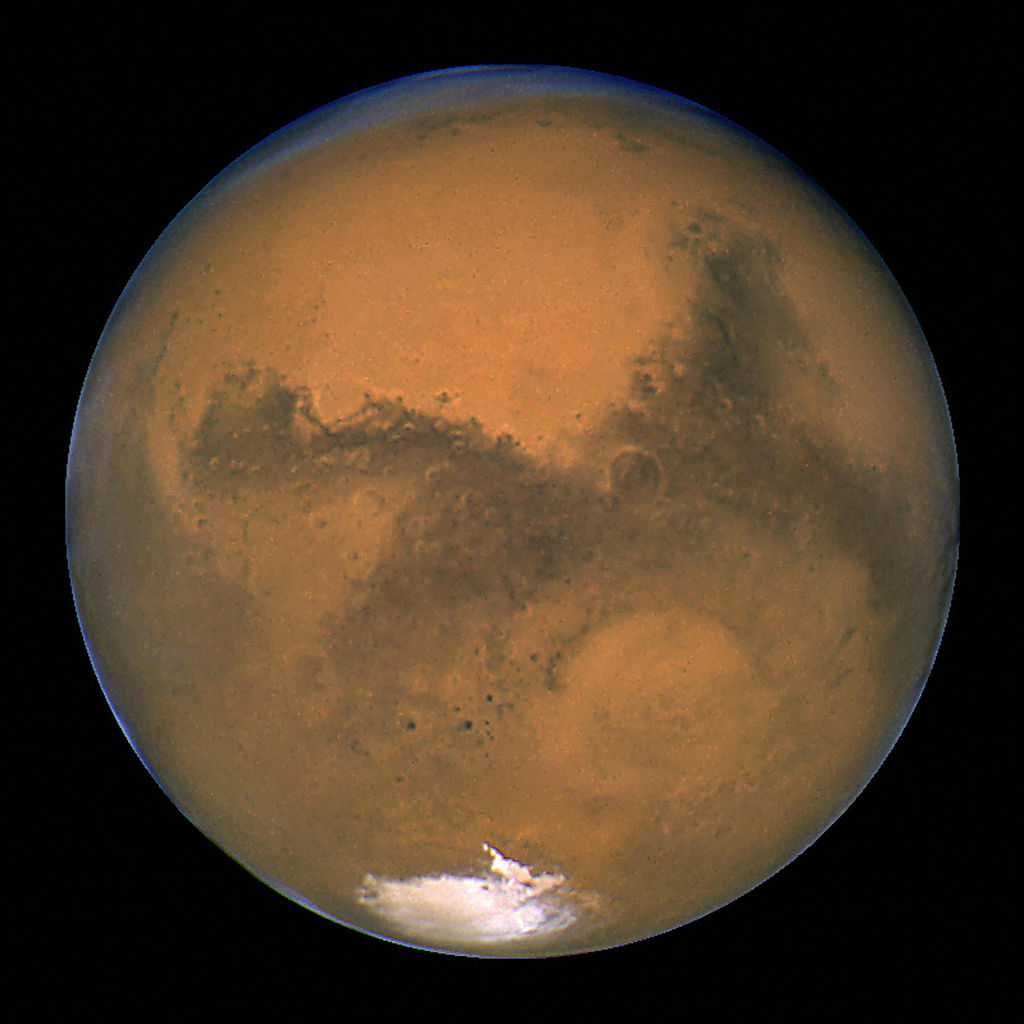This 4.2-billion-year-old fossil could lead to the discovery of life on Mars


A free daily email with the biggest news stories of the day – and the best features from TheWeek.com
You are now subscribed
Your newsletter sign-up was successful
The oldest known fossil on Earth could be the key to discovering alien life, researchers believe. The newfound microscopic bacteria unearthed in a rock formation in Quebec, Canada, would have lived in hot ocean vents 4.2 billion years ago — vents that also existed during the same period in the oceans of Mars.
The bacteria is "the strongest evidence yet that similar organisms could also have evolved on Mars, which at the time still had oceans and an atmosphere, and was being bombarded by comets which probably brought the building blocks of life to Earth," The Telegraph writes.
Notably, scientists now have an idea of what to be looking for on the Red Planet. "Early Mars and early Earth are very similar places, so we may expect to find life on both planets at this time," said Matthew Dodd, who is working on the study that is being co-funded by NASA. "We know that life managed to get a foothold and evolve rapidly on Earth. So if we have life evolving in hydrothermal vent systems maybe even 4.2 billion years ago when both planets had liquid water on their surface, then we would expect both planets to develop early life."
The Week
Escape your echo chamber. Get the facts behind the news, plus analysis from multiple perspectives.

Sign up for The Week's Free Newsletters
From our morning news briefing to a weekly Good News Newsletter, get the best of The Week delivered directly to your inbox.
From our morning news briefing to a weekly Good News Newsletter, get the best of The Week delivered directly to your inbox.
Before the primordial tube-like bacteria was discovered in Canada, the oldest known fossil on Earth was 3.4 billion years old, and with it scientists estimated that life started on our planet 3.7 billion years ago. The Quebec discovery pushes that date further back, with life now estimated to have begun as early as 4.5 billion years ago — a mere 100 million years after the Earth was formed.
"It's indeed possible that life started on Mars as well as the Earth, but then fizzled out — maybe leaving some traces that we will discover from future probes," said Astronomer Royal Sir Martin Rees. Read more about the exciting discovery at The Telegraph.
A free daily email with the biggest news stories of the day – and the best features from TheWeek.com
Jeva Lange was the executive editor at TheWeek.com. She formerly served as The Week's deputy editor and culture critic. She is also a contributor to Screen Slate, and her writing has appeared in The New York Daily News, The Awl, Vice, and Gothamist, among other publications. Jeva lives in New York City. Follow her on Twitter.
-
 How the FCC’s ‘equal time’ rule works
How the FCC’s ‘equal time’ rule worksIn the Spotlight The law is at the heart of the Colbert-CBS conflict
-
 What is the endgame in the DHS shutdown?
What is the endgame in the DHS shutdown?Today’s Big Question Democrats want to rein in ICE’s immigration crackdown
-
 ‘Poor time management isn’t just an inconvenience’
‘Poor time management isn’t just an inconvenience’Instant Opinion Opinion, comment and editorials of the day
-
 Nobody seems surprised Wagner's Prigozhin died under suspicious circumstances
Nobody seems surprised Wagner's Prigozhin died under suspicious circumstancesSpeed Read
-
 Western mountain climbers allegedly left Pakistani porter to die on K2
Western mountain climbers allegedly left Pakistani porter to die on K2Speed Read
-
 'Circular saw blades' divide controversial Rio Grande buoys installed by Texas governor
'Circular saw blades' divide controversial Rio Grande buoys installed by Texas governorSpeed Read
-
 Los Angeles city workers stage 1-day walkout over labor conditions
Los Angeles city workers stage 1-day walkout over labor conditionsSpeed Read
-
 Mega Millions jackpot climbs to an estimated $1.55 billion
Mega Millions jackpot climbs to an estimated $1.55 billionSpeed Read
-
 Bangladesh dealing with worst dengue fever outbreak on record
Bangladesh dealing with worst dengue fever outbreak on recordSpeed Read
-
 Glacial outburst flooding in Juneau destroys homes
Glacial outburst flooding in Juneau destroys homesSpeed Read
-
 Scotland seeking 'monster hunters' to search for fabled Loch Ness creature
Scotland seeking 'monster hunters' to search for fabled Loch Ness creatureSpeed Read
